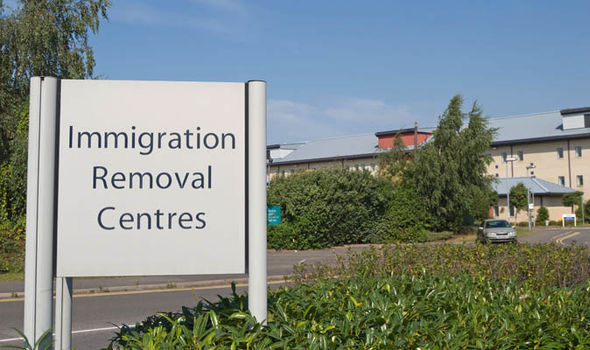A British court has ruled that the Home Office has violated human rights laws by refusing to investigate the deaths of a few asylum seekers it held in detention.
In their ruling on Wednesday, two immigration judges also accused the Home Office of purposefully trying to prevent an investigation by deporting the only witness in the case.
“Despite a tragic death within a detention centre, the home secretary did not hesitate to maintain her plan to remove potential witnesses by charter flight, ignoring anyone who wished to come forward to give evidence,” they said.
The witness in question is Nigerian asylum seeker Ahmed Lawal. He was due to give evidence about his friend Oscar Lucky Okwurime, who died of negligence while in detention in August 2019.
Upon his death at the Harmondsworth immigration removal center, Okwurime’s blood pressure reading showed hypertension, suggesting that he could be saved if sufficient medical care was available when it mattered.
The official healthcare policy by the Home Office states that in such cases blood pressure tests must be done on a regular basis to make sure the asylum seeker is not in danger. But this was not the case with Okwurime and he diedat the age of 34 from a stroke which was most possibly cause by hypertension.
Lawal was called as a witness by the court but the Home Office attempted to deport him just five days later after Okwurime’s death.
The Home Office even made no effort to secure the evidence beforsending him back, accprding to a probe.
The high court and the judge prevented Lawal’s deportation in time, allowing him to eventually present the evidence last November. The court found that Okwurime indeed died of unnatural causes and as a direct result of neglect by the Home Office.
“This case demonstrates the cavalier attitude of the Home Office when enforcing removals,” said Lawal’s lawyer
The two immigration judges found Wednesday that the Home Office breached the law by trying to remove Lawal from the case. They also ruled that the department’s policy was “legally deficient” as it didn’t give sufficient guidance as to what should be done when an unlawful death occurs in an immigration center.
They also ruled unlawful a different policy that failed to did efficiently secure evidence from witnesses of death in detention.
The court ruled that the Home Office can no longer undermine inquiries into such deaths.
According to numbers by the charity Inquest, a rights advocacy group since 2000 there have been at least 38 deaths in migrant detention centers across the UK, 16 of which self-inflicted while 17 were not and two were ruled homicides. The other two have yet to be classified.
The Home Office has stated in response to the ruling that deaths in detention are “relatively rare” but it will review its policies and probe such cases.
“Deaths in detention are relatively rare and are referred to police and the prisons and probation ombudsman for investigation,” read a statement.
“We have noted the judgment and will be refreshing our current processes, such as introducing a new checklist to ensure that all potential witnesses are identified.”


















